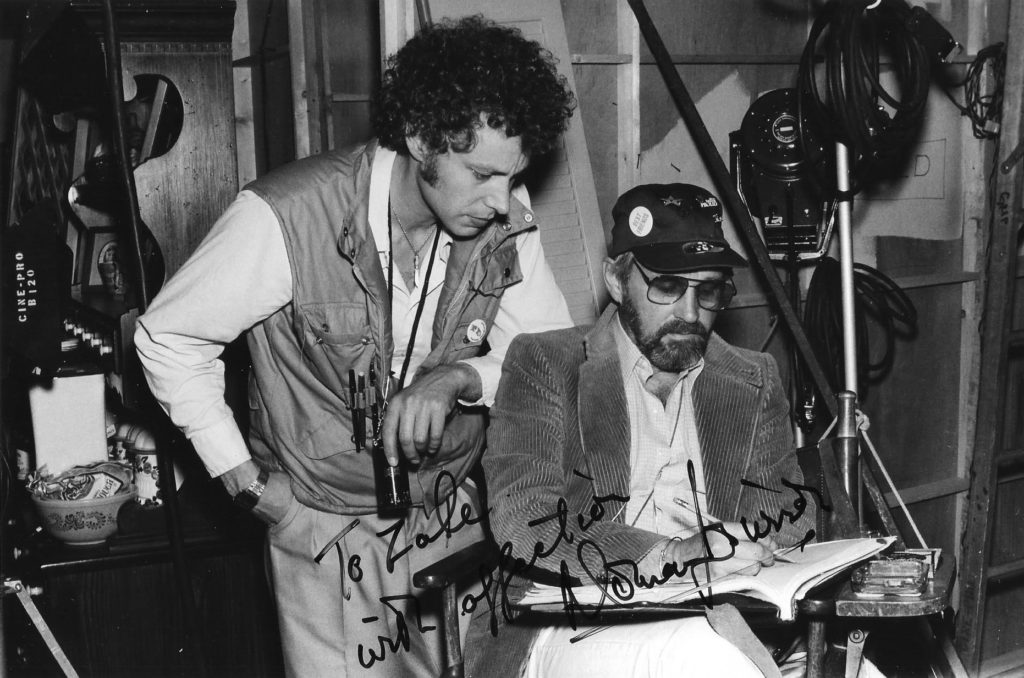He played Apollo Creed in the Rocky movies. He was also a guest star on an episode of Danger Bay which I directed. As a courtesy, I met him when he arrived at the Vancouver airport. He made it very clear that we were not going to be friends. He wasn’t happy to be doing a guest appearance in “Danger Bay” and I remember him saying something about only doing it to get a new television set.

I escorted Mr. Weathers to the registration desk of the Bayshore Inn and asked the desk clerk if she had a room for him. “It’s a suite, isn’t it,” he said, in a tone that implied it bloody well better be a suite.
“Is it a suite?” I asked, and was relieved to learn that it was.
The next morning on set, I watched him put a gold ring in his nose. This is not something that made me happy, and, as the director, I suppose I could have told him that this wasn’t in the style of the show. But I knew what he was doing. He was making a distinction between his character in this guest appearance and his character as the helicopter pilot in Magnum PI. And who was I to tell a black man what his culture was about. Also, this was still in the days when Donnelly Rhodes was doing what he called “Breaking in a new director.” I couldn’t make a decision without Donnelly raising an objection and suggesting an alternative, to the point where I was convinced he was trying to see if he could get me mad enough to hit him. He would have liked that. Nothing Donnelly liked better than a fight. He and Weathers we getting along gang busters, laughing and joking like old frat mates. I was intimidated and felt out gunned.
Thinking back on this I now realize that Carl Weathers gave me a gift. Until this happened I taken the role of director on episodic television with the same attitude I took to directing a feature, the assumption that the director is the authority on set and gets to call the shots when it comes to the everything the audience is going to see. I was comfortable with that. I expected my decisions to carry the authority of the director, and was happy to stand alone in that position. But this doesn’t work on episodic TV. I should have been on the phone to the line producer and requested his presence on set. I needed backup, but didn’t know it. So I ignored the ring in the nose and we shot the scenes.
When the brass saw the dailies, the shit really hit the fan. Every black father or mother in America was going to call the network to complain that their kid wants a ring in his nose like Carl Weathers has. Who is this Canadian director? What kind of idiot is he?
I had a three show contract on “Danger Bay”. The Disney brass wanted to cancel my next two shows. I’m pretty sure the only reason they didn’t was that the show had a tight budget and they didn’t want to pay me not to direct.
In the final scene of that episode, Donnelly Rhodes says goodbye to Carl Weathers and sends him back to his job in Africa, trying to control the trade in endangered species hides. I suggested that they should hug. That was too gay for Mr. Weathers. We settled on a manly handshake.
Carl Weathers and I did not become friends, but I do appreciate the contribution he made to my education as an episodic television director. It took a couple more hard lessons before I took this one to heart. Some might say I’m a slow learner and never did internalize this lesson until now, looking back at my career from the safety of retirement.
To any aspiring TV directors that might be reading this I will add this: Pay attention to the power and the money. Form relationships with the people who can give you work. Just being a good director isn’t enough.

